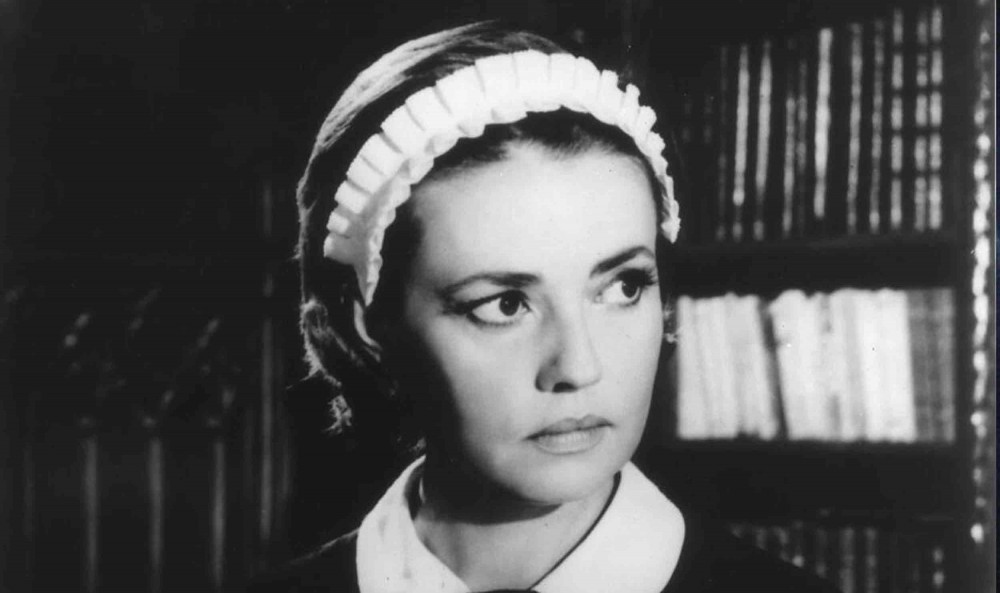DIARY OF A CHAMBERMAID
Sunday, August 7
5:10
Monday, August 8
2:35
France, 1964
Directed by Luis Buñuel
Starring Jeanne Moreau, Michel Piccoli, Georges Géret, Daniel Ivernel
Screenplay by Luis Buñuel, Jeane-Claude Carriére
Based on the novel by Octave Mirbeau
DCP. Approx. 97 min.
Parisian femme de chambre Jeanne Moreau has more that the usual household dirt to contend with at her new post at a provincial manor — including a foot fetishist paterfamilias, Piccoli’s sexually desperate monsieur, and a facist manservant who really enjoys slaughtering the geese.
“The country is always a little triste.” complains Parisian femme de chambre Jeanne Moreau en route to her new post ar a provincial manor. But maybe another adjective comes to mind when she checks out the menage: the foot fetishist paterfamilias (“I want to see them live!” he exhorts, as she saunters about in a choice pair of boots from his private stock): Michel Piccoli’s chain-smoking, endlessly frustrated son-in-law ("He’s a dead loss.” notes another domestic): the frigid fuss-budget daughter who conducts enigmatic chemical experiments. And demands that Moreau remove her shoes before she dusts the salon; the next-door neighbor who tosses garbage and vituperation over the wall: and Georges Geret’s facist roughneck manservant, who really enjoys slaughtering the geese. Adapted from Octave Mirbeau’s satiric 1900 novel (previously filmed in Hollywood by Renoir, with Paulette Goddard), we’re obviously in Buñuel country, although it’s one of his more stylistically straightforward works, with the action updated to the late 20’s to provide commentary on the rise of the right-wing Action Francaise and the director’s trademark surrealism eschewed in favor of a more realistic b&w cinematography. A second-choice project for Buñuel after the Spanish government nixed his first attempt at Tristara, the material obviously proved congenial (the foot fetishism comes straight from the book) and teamed the director for the first time with producer Serge Silberman and co-scripter Jean-Claude Carriere (here in a cameo as the priest a little too interested in his daughter’s sexual problems), collaborators he would stay with for the rest of his career; while providing him with a very Buñuelian ambiguity — is Moreau coming on to a rapist/murdere because 1) she’s trying to trap him, 2) she’s actually turned on, or 3) both? — and a chance for a belated revenge: the “Chiappe” the fascists cheer at the end is the police commissioner who suppressed his L’age d’Or in 1930. Buñuel’s most sardonically realistic work. Restored in 4K from the original camera negative by Studiocanal. New subtitles by Lenny Borger.
Reviews
“Less fantastical than much of Luis Bunuel's work, this 1964 adaptation of Octave Mirbeau's novel demonstrates that realism and surrealism aren't the polar opposites some might think.”
– Jake Wilson, The Age

